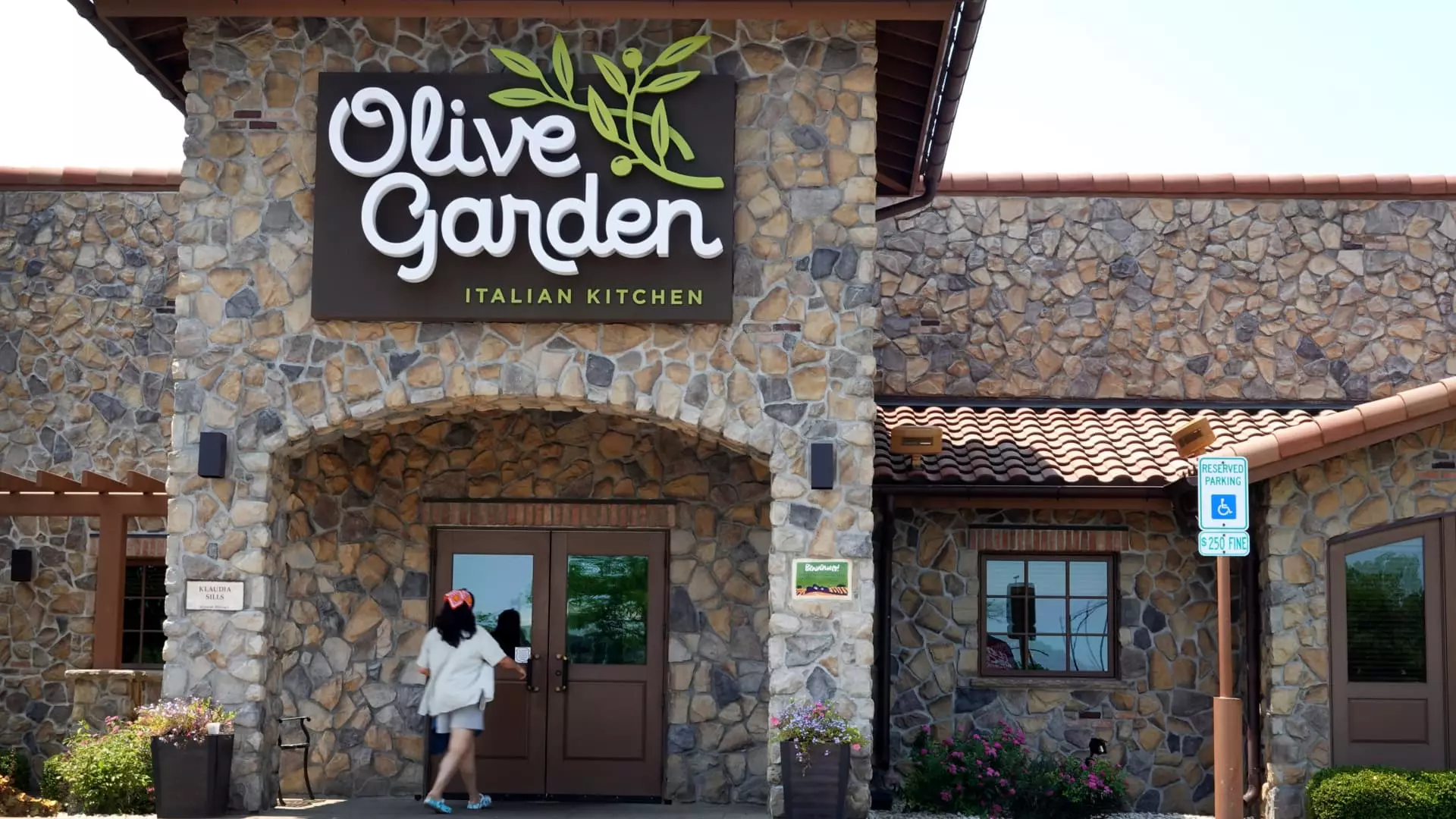Darden Restaurants Inc. recently disclosed its financial results for the first quarter, highlighting a puzzling picture of growth mixed with challenges. Despite net income experiencing an uptick from the previous year, the company’s quarterly earnings and revenue fell short of analysts’ expectations. Following these results, CEO Rick Cardenas expressed unwavering confidence in the brand’s fundamental strengths while acknowledging the immediate difficulties at some of its flagship locations, particularly Olive Garden and its fine dining restaurants. This duality of confidence and concern reflects the broader challenges many restaurant operators face amidst changing consumer behaviors and preferences.
The company reported earnings per share of $1.75, just shy of the expected $1.83. Revenues stood at $2.76 billion against the anticipated $2.8 billion, indicating a slight downturn in customer traffic and spending. Specifically, same-store sales dipped by 1.1%, and while Darden’s overall net sales showed a modest 1% increase, this growth was partly overshadowed by a significant decline in customer visits, particularly noted during July. This decrease raises questions about consumer confidence and spending patterns, challenging the operational strategies that have historically driven Darden’s success.
In examining the various segments of Darden’s portfolio, the results were starkly contrasting. While LongHorn Steakhouse demonstrated resilience with a commendable 3.7% growth in same-store sales, the Olive Garden branch faced a significant setback with a decline of 2.9%. Notably, Darden’s fine dining establishments, including Eddie V’s and The Capital Grille, reported a daunting 6% drop in same-store sales. To counteract negative trends, Olive Garden aims to reintroduce its popular “Never Ending Pasta Bowl” promotion, which may attract customers back through nostalgic value and price-sensitive offerings.
Despite the disappointing earnings report, the stock market response seemed to defy expected trajectories: shares of Darden rose nearly 10% in premarket trading. This seemingly paradoxical reaction can be attributed to the market’s focus on the long-term growth strategy articulated by Cardenas. Investors often weigh a company’s future potential against short-term setbacks, leading to a disconnect between immediate financial results and stock performance. The leadership’s assurance of focusing on guest needs while maintaining long-term health indicates a commitment to sustainable growth rather than quick fixes.
In light of the challenges, Darden has retained its full-year earnings forecast, estimating earnings per share from continuing operations between $9.40 and $9.60, alongside projected net sales of $11.8 billion to $11.9 billion. While maintaining this outlook amid declining sales figures might seem optimistic, it signals an inherent belief in the brand’s operational strategies and potential for recovery. Navigating these mixed signals will require astute decision-making and agility in marketing approaches to adapt to a rapidly evolving restaurant landscape.
Darden Restaurants’ latest quarterly report reflects an intricate landscape of operational challenges couched within a broader strategic optimism. The experience of falling short of immediate financial expectations serves as a critical juncture for the company, compelling it to innovate and pivot effectively to meet the evolving needs of its clientele in a competitive market.

